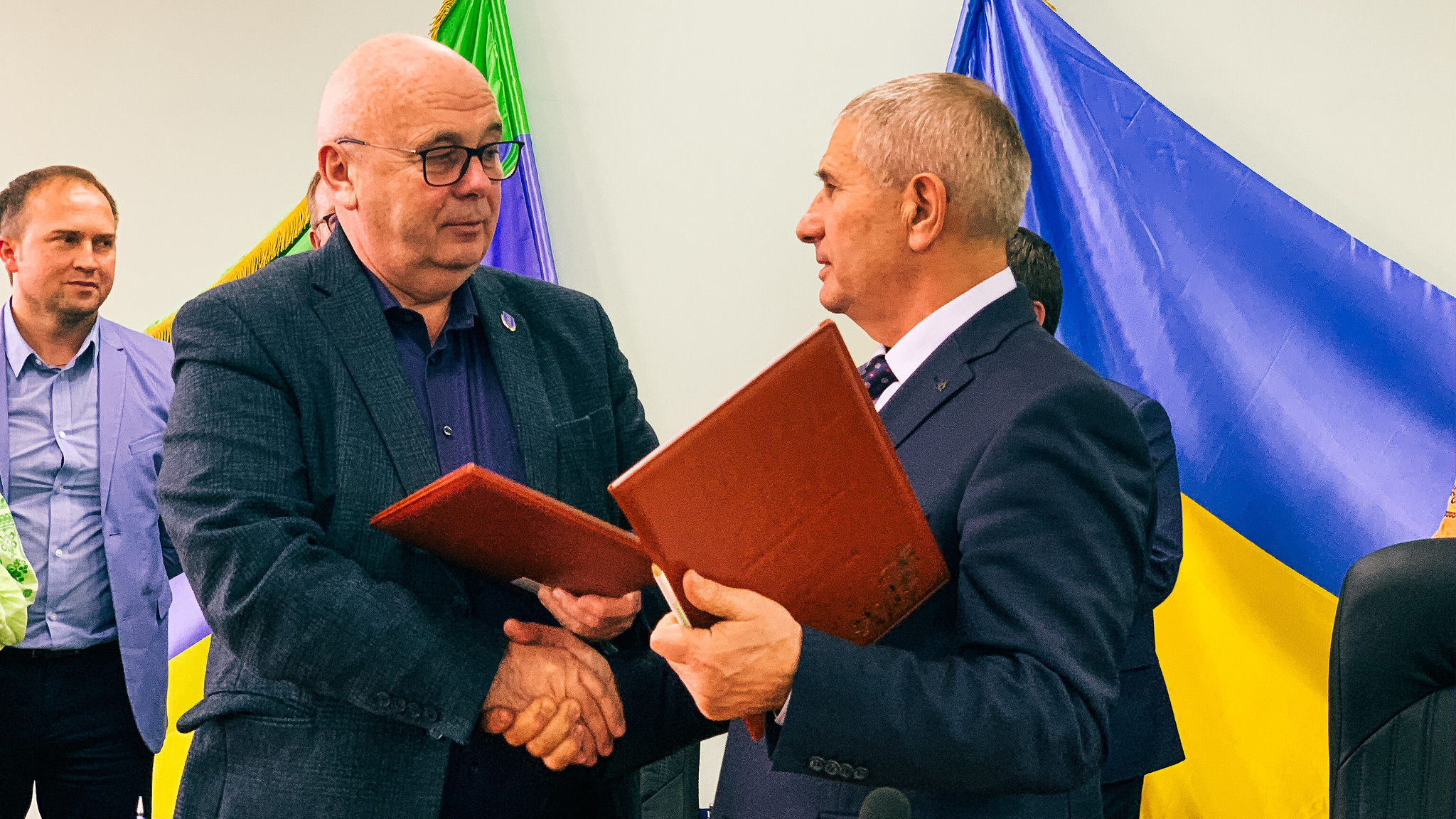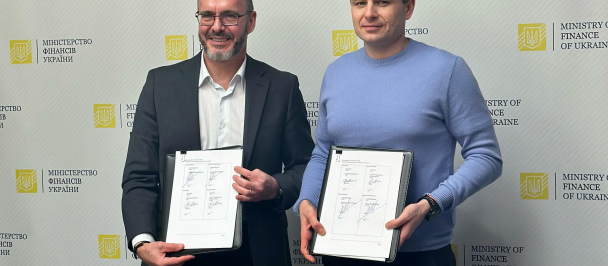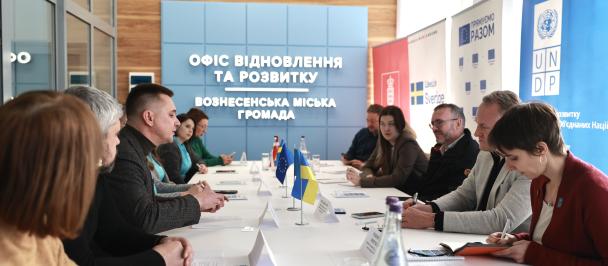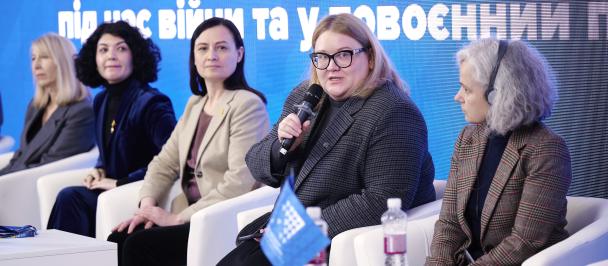Photo credit: Maksym Kytsiuk / UNDP Ukraine
Lyman, Donetsk Oblast, 5-6 December 2019 – Estonia’s successful experience in applying e-governance instruments and possible ways to replicate it in Ukraine were discussed at the forum “Estonia’s experience for eastern Ukraine: e-governance, decentralization and business”, organized under the UN Recovery and Peacebuilding Programme with financial support from the European Union.
About 50 participants took part in the forum – community representatives, government officials and representatives of admin service providers in Donetsk and Luhansk oblasts – to determine prospects for future cooperation with Estonia and further implementation of the best e-governance practices on the local level in eastern Ukraine.
The opening remarks at the forum were delivered by Olena Ruditch, the coordinator of the component “Local governance and decentralization reform” of the UN RPP, and the head of Lyman Amalgamated Territorial Community, Petro Tsymidan.
“We’ve been very much interested in studying the Estonian practices and experience in territory amalgamation processes, e-governance and the eHealth system, and we’re happy that now we can fully implement all of these things in Donetsk and Luhansk oblasts in Ukraine,” Ruditch said.
Estonia is a leading country in e-governance among the European Union member states. The country, due to its effective legislation and a favourable economic environment, has been able to ensure that all communication between citizens and the government can happen electronically.
Ninety-four percent of the Estonian population now use an electronic ID-system and digital signatures, vastly simplifying the rendering of administrative services. Meanwhile, about 99.9 percent of citizens use electronic banking services, and 98 percent of citizens’ tax declarations are submitted online.
The health system in Estonia has got a boost from e-governance as well. For instance, 99 percent of medical prescriptions are logged in an online registry, allowing citizens to get much-needed medicines in any pharmacy just by showing their ID-card.
The Estonian delegation at the forum was represented by the head of the Viru-Nigula municipality Einar Vallbaum, the head of association of municipalities of Viru-Nigula Maido Novak, the head of the Rakvere municipality Sven Hobemagi, the director of the hospital in Rakvere Ain Surkaev, e-governace expert Victor Guzun and the owner of the company Energreen Finance Tarmo Villems.
The UN Recovery and Peacebuilding Programme has already organized three study visits for employees of Ukrainian amalgamated territorial communities and administrative service centres to Estonia, with the aim of identifying prospects for future partnerships and further implementing the best e-governance practices at the local level in eastern Ukraine. One the key results of study tour was the signing of a Memorandum of Understanding between the Lyman ATC and the municipality of Laane-Virumaa during a visit by the Estonian partners to Donetsk Oblast.
Media enquiries:
Maksym Kytsiuk, Communications Associate, UN Recovery and Peacebuilding Programme, maksym.kytsiuk@undp.org, +380 63 576 1839
Background:
The UN Recovery and Peacebuilding Programme is being implemented by four UN agencies: The United Nations Development Program (UNDP), the UN Entity for Gender Equality and Women's Empowerment (UN Women), the UN Population Fund (UNFPA), and the UN Food and Agriculture Organization (FAO).
The programme is supported by 11 international partners: the European Union, the European Investment Bank, and the governments of the United Kingdom, Denmark, Canada, the Netherlands, Norway, Poland, Sweden, Switzerland and Japan.

 Locations
Locations




